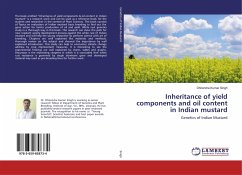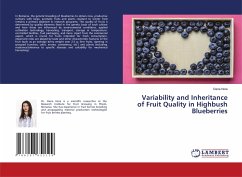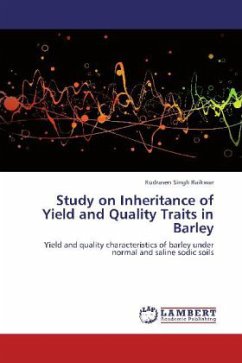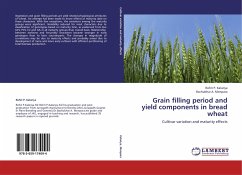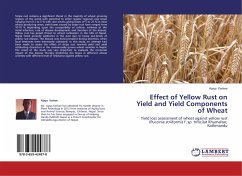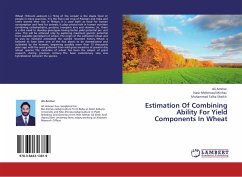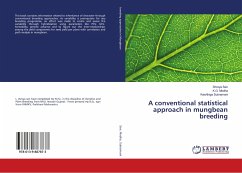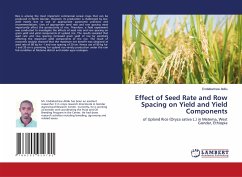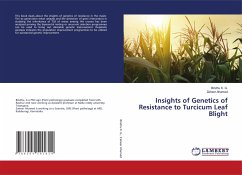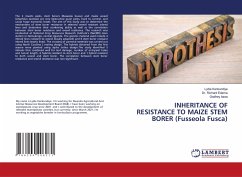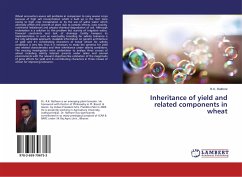
Inheritance of yield and related components in wheat
Versandkostenfrei!
Versandfertig in 6-10 Tagen
27,99 €
inkl. MwSt.

PAYBACK Punkte
14 °P sammeln!
Wheat encounters severe salt problems in comparison to rainy season crops because of high salt concentration which is built up in the root zone owing to high crop transpiration or by the use of saline water which adversely affects the growth of plant due to osmotic effects, ionic toxicity, nutritional imbalances and physico-chemical degradation of soil. Although reclamation is a solution to this problem but scarcity of irrigation water, financial constraints and lack of drainage facility hampers its implementation. In such an eventuality, breeding for salinity tolerance is the only admirable a...
Wheat encounters severe salt problems in comparison to rainy season crops because of high salt concentration which is built up in the root zone owing to high crop transpiration or by the use of saline water which adversely affects the growth of plant due to osmotic effects, ionic toxicity, nutritional imbalances and physico-chemical degradation of soil. Although reclamation is a solution to this problem but scarcity of irrigation water, financial constraints and lack of drainage facility hampers its implementation. In such an eventuality, breeding for salinity tolerance is the only admirable approach. Available information on genetic architecture of yield and it's contributing characters of bread wheat for salinity conditions is very less; thus it is necessary to study the genetics for yield and related characteristics and their inheritance under salinity conditions. The ensuing investigation were undertaken to analyse three crosses of wheat including salinity tolerant parents under saline and normal environments with the relevant objectives like estimation of the magnitude of gene effects for yield and its contributing characters in three crosses of wheat for improving tolerance.



